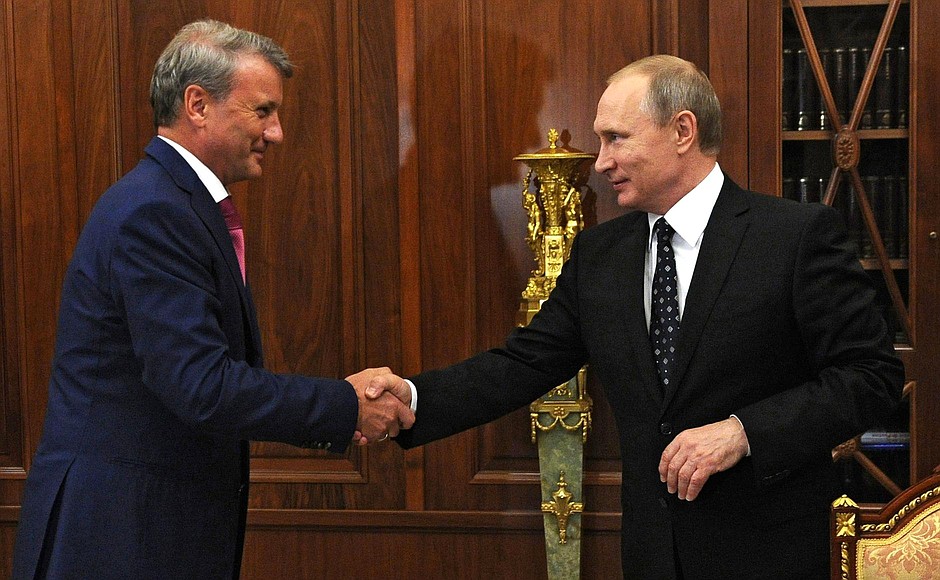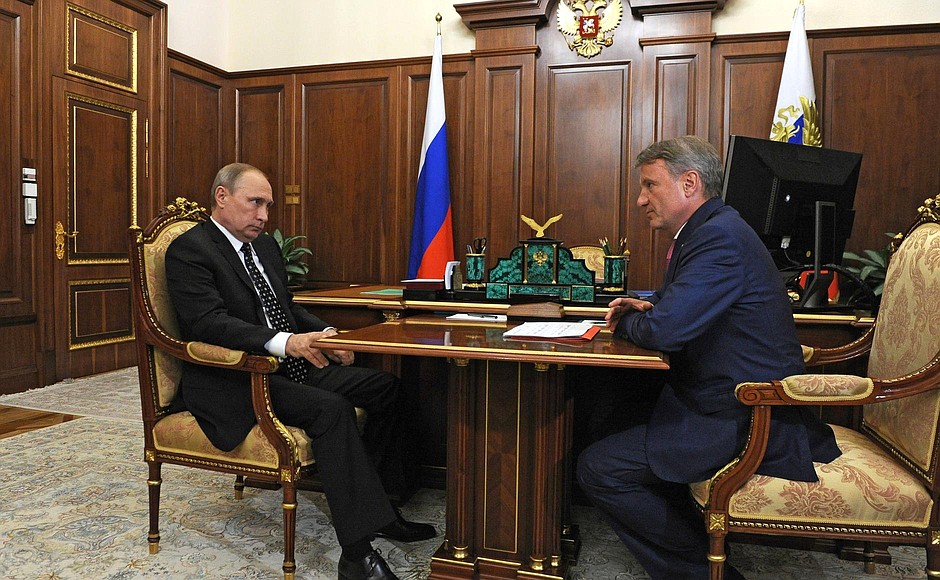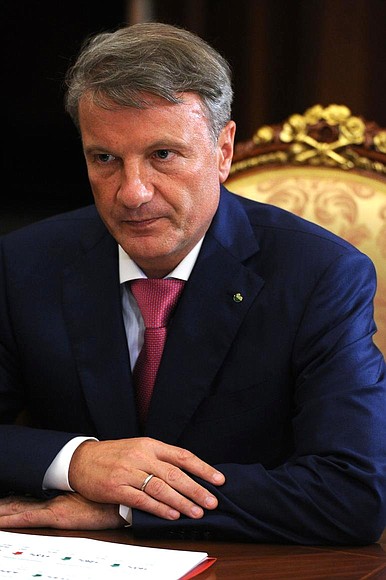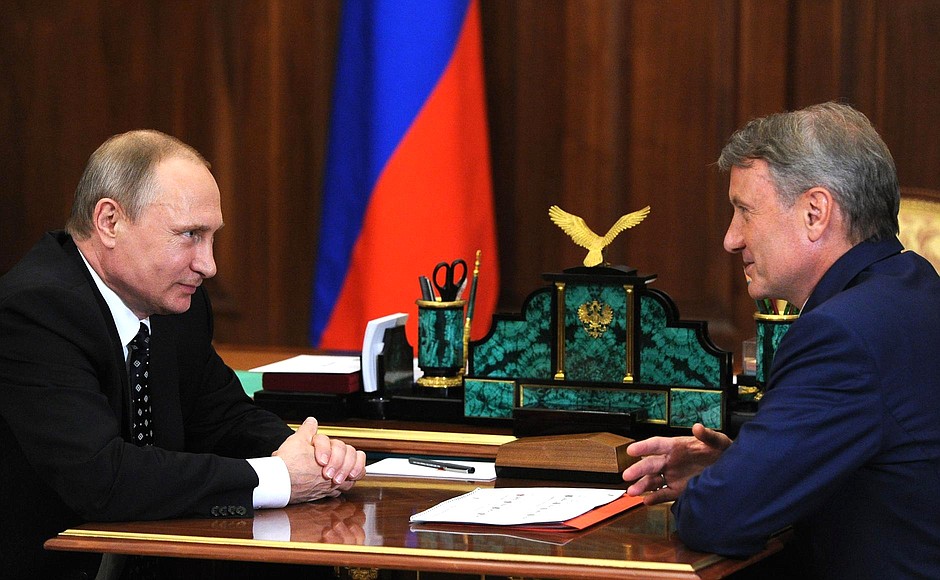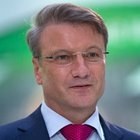President of Russia Vladimir Putin: Mr Gref, I know that the bank’s work has been not bad overall, but I would like to start with housing mortgages. I know you made a decision in this area just recently. How do you assess the current situation on this market?
CEO of Sberbank German Gref: Mr President, we took the decision to lower interest rates, and this was not our first interest rate reduction this year. We see that since the start of June, demand has picked up on the housing mortgage market.
Before June, the housing mortgage market was being maintained primarily through state subsidies (subsidised mortgages), but now, demand is starting to pick up on both the secondary and new housing markets. We hope that with the help of this interest rate reduction, by the end of the year we will be in a position where we will no longer need to rely on state-subsidised mortgages next year.
If the situation continues developing as it is today, I think that next year, it would be realistic to expect a housing mortgage interest rate of lower than 11 percent. In general, this will mean that the state subsidies will have played their part and we will be able to shift to completely normal commercial work on this market.
We hope that the fourth quarter of this year will bring a real revival on the mortgage market. We are currently seeing growing activity on the consumer loans market.
Vladimir Putin: We should make the situation clear straight away so that your clients don’t get the idea that it’s better to wait and not take out a mortgage loan now at the current rate, which is 12 percent, isn’t it?
German Gref: That is right.
Vladimir Putin: It is better not to wait until it goes down to 11 percent, because inflation is running at a faster rate, and so whoever is ready and has the desire, it is better to do it now.
German Gref: Mr President, you are absolutely correct, because there are always two components in any economic process: mortgages will become cheaper but housing prices will immediately start rising. I therefore think that this is a very opportune moment to go ahead while mortgage loans have become cheaper and housing is still very cheap.
I think, of course, that the drop in mortgage interest rates and the rise in housing prices will be more or less synchronised, and so it is hard to choose the ideal moment, but now is probably one of the best moments.
Vladimir Putin: What is the situation with other results?
German Gref: We finished the first half of the year with a record profit. We made a net profit of 229 billion roubles over the first six months of the year.
Vladimir Putin: How does this compare with last year’s results?
German Gref: It is up 180 percent on last year’s results. It is difficult to compare to last year because that was a particularly difficult year.
Vladimir Putin: But even so?
German Gref: I think it would be more fitting to compare this year’s result with that of 2014, but in any case, it is a record profit in all our years of work. This is linked to the fact that last year, we resolved our main problems and built up the bulk of our provisions to cover the situation with Ukraine. This was a very complicated task for the bank, of course.
The situation regarding Ukraine has more or less stabilised now and we have established our main reserves, and I think that with regard to those areas for which provisions have not been entirely covered yet, we can offset some of this based on assessments of the quality of our Ukrainian assets.
As far as problem areas – loans to legal entities are one. We have not yet restored lending in this area, unfortunately, and demand on the lending market for legal entities has yet to recover.
Vladimir Putin: You need to work more actively with them.
German Gref: We are trying to do this, especially everything concerning small businesses.
Vladimir Putin: You need to offer them the right conditions…
German Gref: As far as small businesses go, there are two aspects here. First, they need rapid and high quality lending. Second, there is everything related to assisting small businesses to resolve all the remaining problems such as convenient practice for keeping accounts, banking accounting and so on.
We have made great progress in this area and, starting in September this year, a new law will come into effect making it possible to open accounts, make transfers, register changes to company charters and so on online.
Essentially, small businesses will not have to visit state agencies in person anymore. This programme, which we are implementing together with the tax service, is a big step forward in general.
I think that the environment that we will have in place by the end of 2016, when all of the legal amendments take effect, will mean that Russia will be offering one of the most interesting and technologically convenient environments for small businesses.
Vladimir Putin: The most important thing is not to introduce any innovations that would only end up making it harder to work.
German Gref: This is an ongoing process, and yes, new hitches do arise.
However, as far as lending goes, to be frank, we have nothing much to boast of for now. We have not yet learned all we need to know about lending to small businesses, and the result is that we have high portfolio losses. Our small businesses portfolio is loss-making today, sadly, and this is probably our biggest challenge and biggest headache.
We realise that we are Russia’s biggest bank and have a network covering the entire country, and this places particular responsibility upon us for work with small businesses. We are putting substantial resources into this area now and I hope too that we will have come up with some new methods and technologies by the end of this year to improve the situation.
But for now, unfortunately, I cannot boast of the same kind of results as we have achieved in implementing programmes to cut red tape for small businesses. In lending, there is still a great deal of work to do.
We have a good result in that our costs are down 13 percent compared to last year, and this is making a big contribution to our operating profit.
Overall, our other results are quite positive and we take a fairly optimistic view of the end of this year.
Vladimir Putin: Good.
<…>
